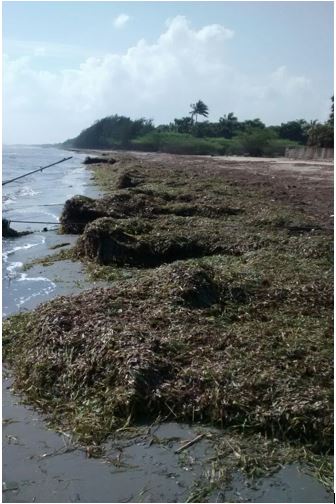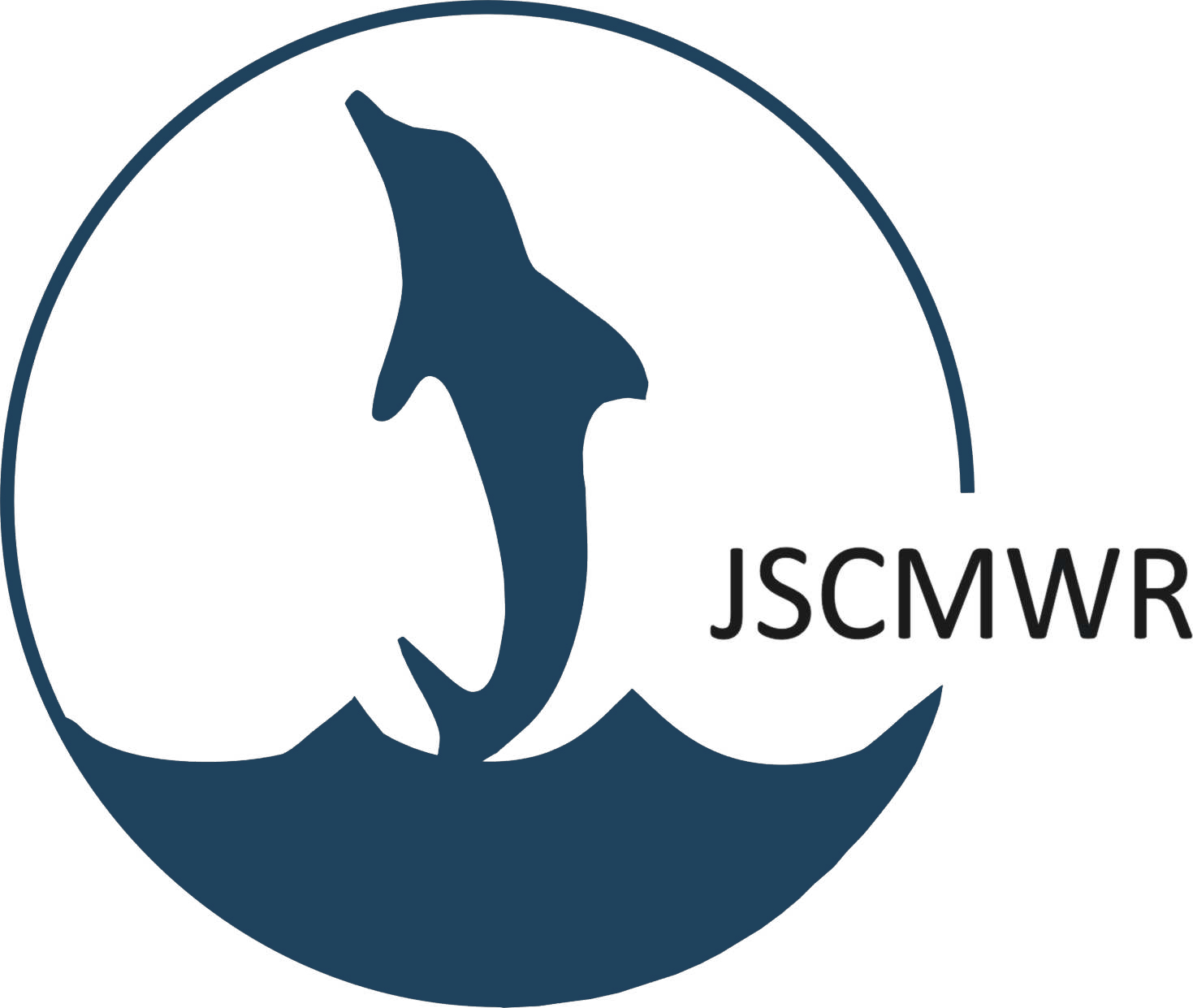Sea grass vermicompost by Saline tolerant Earthworm in Palkbay
Three stranded seagrasses were utilized for vermicomposition. They are Halophila ovalis, Syringodium isoetifolium and Cymodocea serrulata. Five different trays were used in different combination setup for investigation of verimcompost. Cymodocea serrulata (1 kg) was placed in the first tray with 25 grams of halo tolerant earthworm. On set of experiment in first tray, the number of earthworm was 119. It was reached maximum in 3rd week and led to decline. However, upto 5th week the weight as well as number of Pontodrilus litoralis not decline much and contributed much on the process of vermicomposition. Halophila ovalis (1 kg) was placed in the tray no 2 with 25 grams of halo tolerant earthworm (Pontodrilus litoralis) (Fig.4). 4th week, total wt of the earth worm increased in maximum (39 g) and started to decline and reached 1 g in 8th week.Interesting observation was Pontodrilus litoralis reached maximum weight and higher number in 28 days and superior to Cymodocea serrulata in terms of weight and number in short days. Syringodium isoetifolium (1 kg) was placed in the tray no 3 with 25 grams of halo tolerant earthworm (Pontodrilus litoralis). Beginning of experiment onwards earth worm Pontodrilus litoralis started to decline in numbers and weight. They were survived upto two weeks (14 days). Mixed (Syringodium isoetifolium, Halophila ovalis and Cymodocea serrulata) sea grass (1 kg) was placed in the fourth tray with 25 grams of halo tolerant earthworm. 3rd week, total wt of the earth worm increased in maximum (31g with 170 numbers) and after started to decline and reached 2 g and 10 numbers in 6th week. Some necessary components in the mixed seagrass might increase the reproduction rate of the worm, Pontodrilus litoralis drastically and simultaneously prevent the weight increase. 170 individuals has been developed through proliferation of Pontodrilus litoralis is the highest record in whole study. Coastal sand was placed in the tray (No 5) with 25 grams of halo tolerant earthworm (Pontodrilus litoralis). They were survived in seven days and found to dead at the end of 7th day. This tray is to know the longevity and life of earthworm without providing the food. Pontodrilus litoralis might survive seven days without food supply. Vermicompost was derived after 60 days. Cymodocea serrulata yielded 500 grams, Halophila ovalis yielded 300 grams and mixed sea grasses yielded 622 grams. However mixed seagrasses yielded high amount, it is properly turned into composit. All essential nutrients were enhanced and pollutants and heavy metals were reduced during the process of verimcomposit. Vermicompost suppress of specific insect attacks by various forms of organic amendments
kg) was placed in the tray no 2 with 25 grams of halo tolerant earthworm (Pontodrilus litoralis) (Fig.4). 4th week, total wt of the earth worm increased in maximum (39 g) and started to decline and reached 1 g in 8th week.Interesting observation was Pontodrilus litoralis reached maximum weight and higher number in 28 days and superior to Cymodocea serrulata in terms of weight and number in short days. Syringodium isoetifolium (1 kg) was placed in the tray no 3 with 25 grams of halo tolerant earthworm (Pontodrilus litoralis). Beginning of experiment onwards earth worm Pontodrilus litoralis started to decline in numbers and weight. They were survived upto two weeks (14 days). Mixed (Syringodium isoetifolium, Halophila ovalis and Cymodocea serrulata) sea grass (1 kg) was placed in the fourth tray with 25 grams of halo tolerant earthworm. 3rd week, total wt of the earth worm increased in maximum (31g with 170 numbers) and after started to decline and reached 2 g and 10 numbers in 6th week. Some necessary components in the mixed seagrass might increase the reproduction rate of the worm, Pontodrilus litoralis drastically and simultaneously prevent the weight increase. 170 individuals has been developed through proliferation of Pontodrilus litoralis is the highest record in whole study. Coastal sand was placed in the tray (No 5) with 25 grams of halo tolerant earthworm (Pontodrilus litoralis). They were survived in seven days and found to dead at the end of 7th day. This tray is to know the longevity and life of earthworm without providing the food. Pontodrilus litoralis might survive seven days without food supply. Vermicompost was derived after 60 days. Cymodocea serrulata yielded 500 grams, Halophila ovalis yielded 300 grams and mixed sea grasses yielded 622 grams. However mixed seagrasses yielded high amount, it is properly turned into composit. All essential nutrients were enhanced and pollutants and heavy metals were reduced during the process of verimcomposit. Vermicompost suppress of specific insect attacks by various forms of organic amendments
